
Small and medium size businesses are now spending more with Facebook than they are with local newspapers, according to the chief executive of Enders Analysis Douglas McCabe.
He said that this switch had happened in the space of just a few years, overturning a business model which has sustained journalism for centuries.
In a presentation at Press Gazette’s Digital Journalism Summit he also noted that the rate of decline in newspaper circulations is accelerating because of the rise of smartphones.
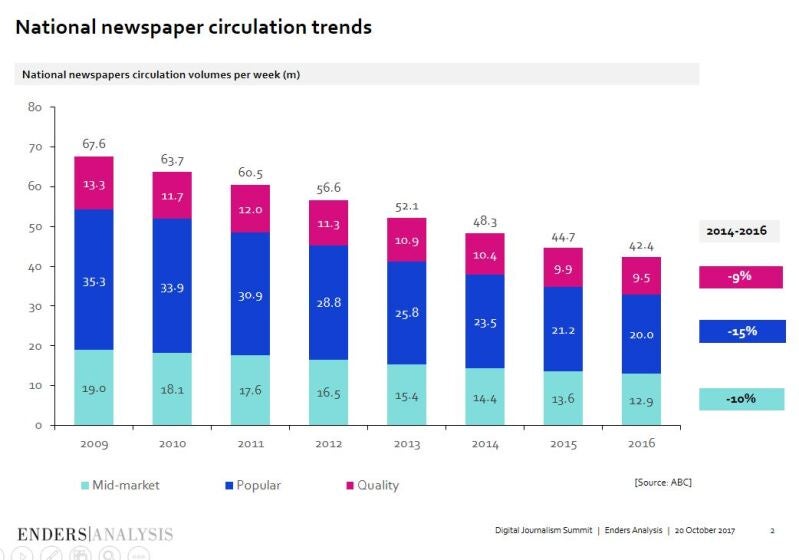
He said: “Smartphones interrupted the news bundle much more than the desktop experience.
“Older demographics and demographics more likely to read popular newspapers are adopting smartphones. As a result the decline in print is accelerating.”
He said that whereas the average length of time spent with a newspaper is 36 minutes per day, only the BBC website achieves more than an hour per month with its readers.
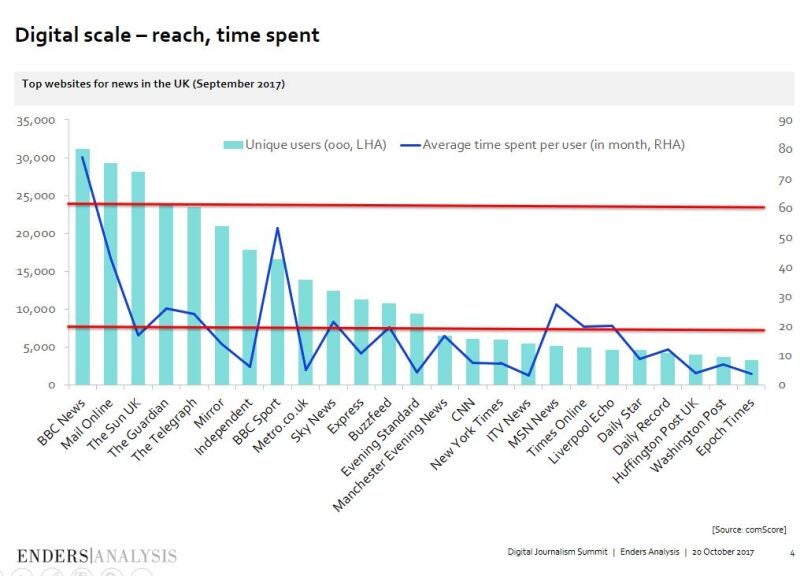
He estimated that Facebook now delivers two thirds of the traffic to some news websites and said that Google and Facebook now account for a majority of the traffic to most news websites.
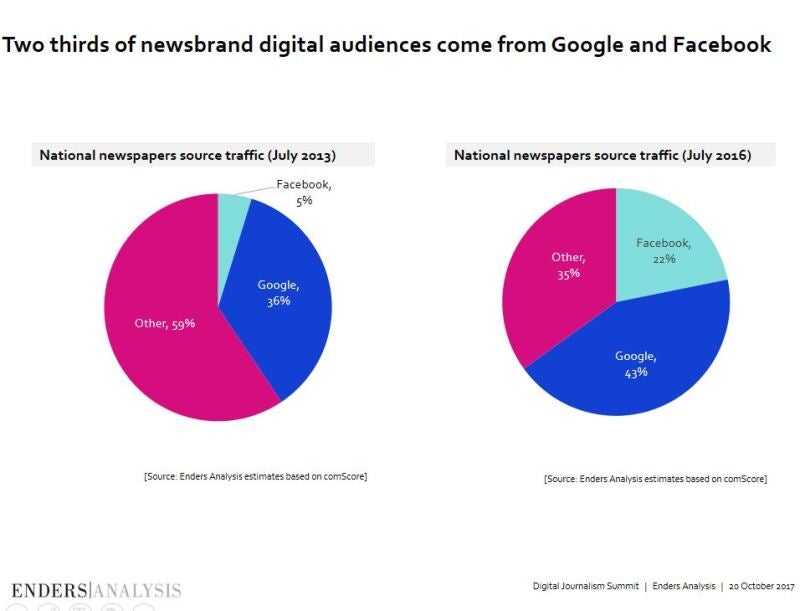
Brand or display advertising has grown little over the last 15 years, and has still dominated by non-digital media.
But most of the growth has been in “activation” advertising, which sends readers directly to a site where they can spend money.
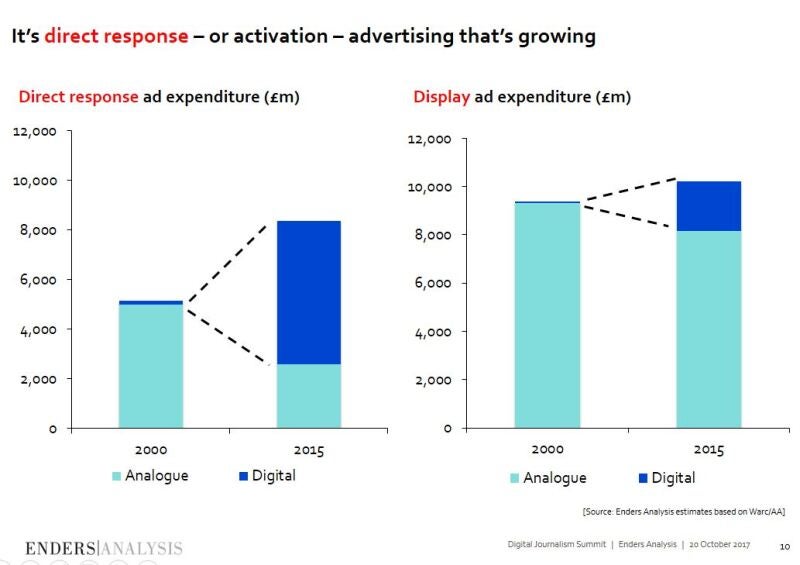
Looking at the growth in digital advertising in the UK, he estimated that 90 per cent of that has gone to Google and Facebook.
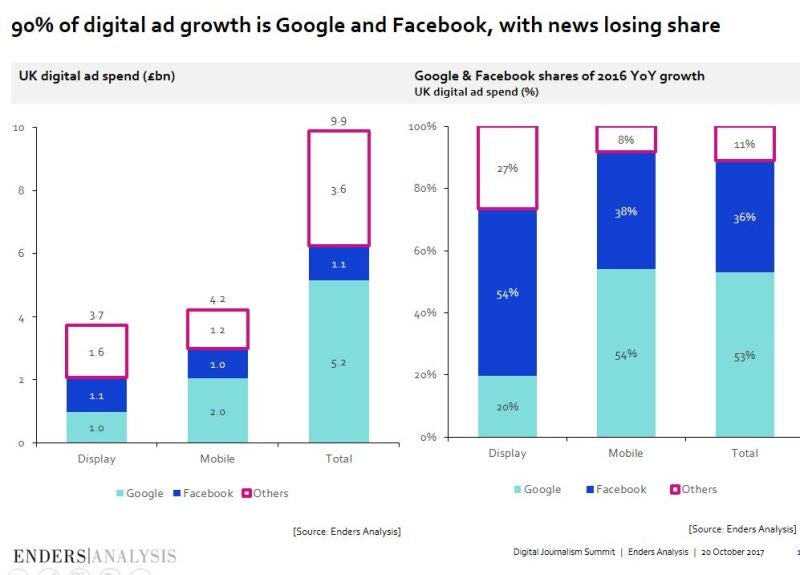
He added: “SMEs are now spending more money with Facebook than they have with the local press. That’s turning something that’s been in place for hundreds of years around in three or four years.”
McCabe said: “The value of context and quality in premium media seems to have vanished in a digital world. That doesn’t feel right, there is something wrong in the way the digital ecosystem is working.
“Should quality news providers be scored and branded by search and social sites? Who’s in charge of that process, how is the industry going to work together is a very important question.”
He also said the news industry needs ask itself some “tough question” about the sort of performance goals it has been setting itself which may have “created some of the problems”.
“Have they been chasing scale and ignoring the consequences for quality, reputation, context and the consumer experience generally?”
The industry now needs to decide how it is going to work out solutions collectively with the digital platforms and advertisers, McCabe said.
The challenge is, he said, to work out “how do we incentivise quality content investment on an ongoing basis. It feels to me that the ecosystem at the moment isn’t really doing that.”
Download all the slides from the Press Gazette Digital Journalism Summit here: Summit slides
Email pged@pressgazette.co.uk to point out mistakes, provide story tips or send in a letter for publication on our "Letters Page" blog
